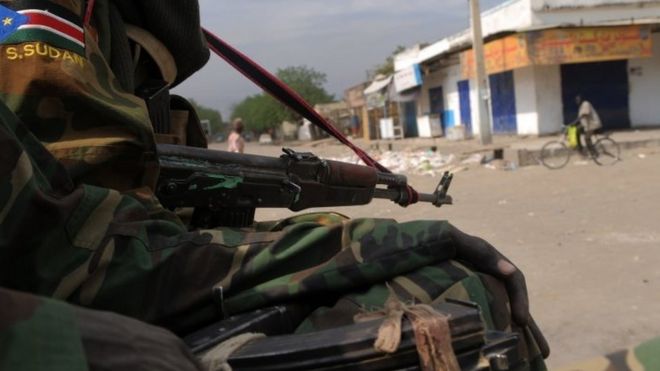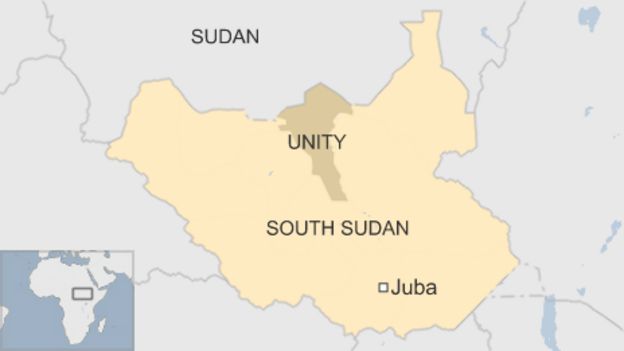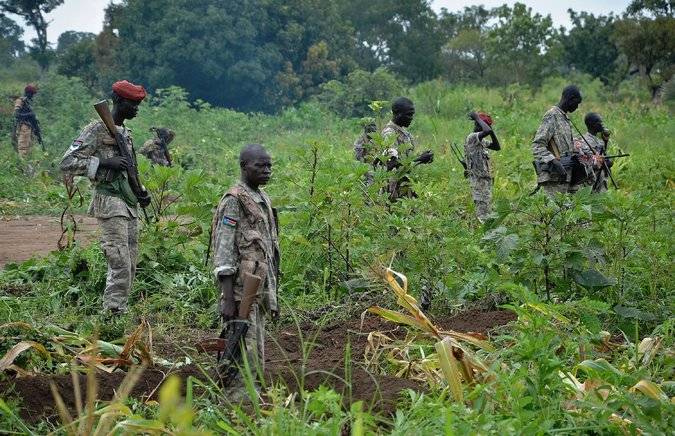sudan
Senior Member
- Oct 17, 2012
- 266
- 11
- 51
The United Nations mission in South Sudan (UNMISS) said it is “deeply troubled” by reports of violations of human rights during recent military clashes in Unity and Upper Nile states.
Speaking on Saturday at the end of a visit to the Unity state capital, Bentiu, the head of UNMISS, Ellen Margrethe Loj, said the peace keeping body is facing numerous challenges in protecting displaced civilians.
“We face a great challenge in ensuring the protection of the hundreds of thousands of displaced civilians throughout South Sudan,” said Loj in a statement.
She was accompanied to Bentiu by the director general of the International Organization for Migration (IOM), William Lacy Swing.
The duo inspected the protection of civilians sites (PoCs) in Bentiu.
The delegation visited the extension of the UNMISS PoC site, that includes works to improve drainage before the rainy season, and the establishment of humanitarian services and shelter. Civilians will reportedly be relocated in the expanded site in the coming weeks.
“UNMISS is deeply troubled by reports of grave violations and abuses of human rights perpetrated during the fighting”, said Loj.
“We must be able to document these crimes by being given unimpeded access to areas where violence has occurred. I want to reiterate how important it is to hold accountable all those who committed atrocities against civilians during fighting,” she added.
IOM is reportedly overseeing the renovation and expansion of the 1.5 million square meters PoC. Renovation, it said, will mitigate the deplorable flooding conditions suffered by those internally displaced during the last rainy season and enhance protection.
UNMISS is currently protecting over 60,000 civilians at its PoCs in Bentiu, and 130,000 civilians all over the POCs in the world’s youngest nation.
Speaking on Saturday at the end of a visit to the Unity state capital, Bentiu, the head of UNMISS, Ellen Margrethe Loj, said the peace keeping body is facing numerous challenges in protecting displaced civilians.
“We face a great challenge in ensuring the protection of the hundreds of thousands of displaced civilians throughout South Sudan,” said Loj in a statement.
She was accompanied to Bentiu by the director general of the International Organization for Migration (IOM), William Lacy Swing.
The duo inspected the protection of civilians sites (PoCs) in Bentiu.
The delegation visited the extension of the UNMISS PoC site, that includes works to improve drainage before the rainy season, and the establishment of humanitarian services and shelter. Civilians will reportedly be relocated in the expanded site in the coming weeks.
“UNMISS is deeply troubled by reports of grave violations and abuses of human rights perpetrated during the fighting”, said Loj.
“We must be able to document these crimes by being given unimpeded access to areas where violence has occurred. I want to reiterate how important it is to hold accountable all those who committed atrocities against civilians during fighting,” she added.
IOM is reportedly overseeing the renovation and expansion of the 1.5 million square meters PoC. Renovation, it said, will mitigate the deplorable flooding conditions suffered by those internally displaced during the last rainy season and enhance protection.
UNMISS is currently protecting over 60,000 civilians at its PoCs in Bentiu, and 130,000 civilians all over the POCs in the world’s youngest nation.



